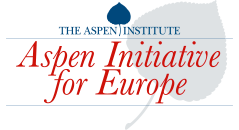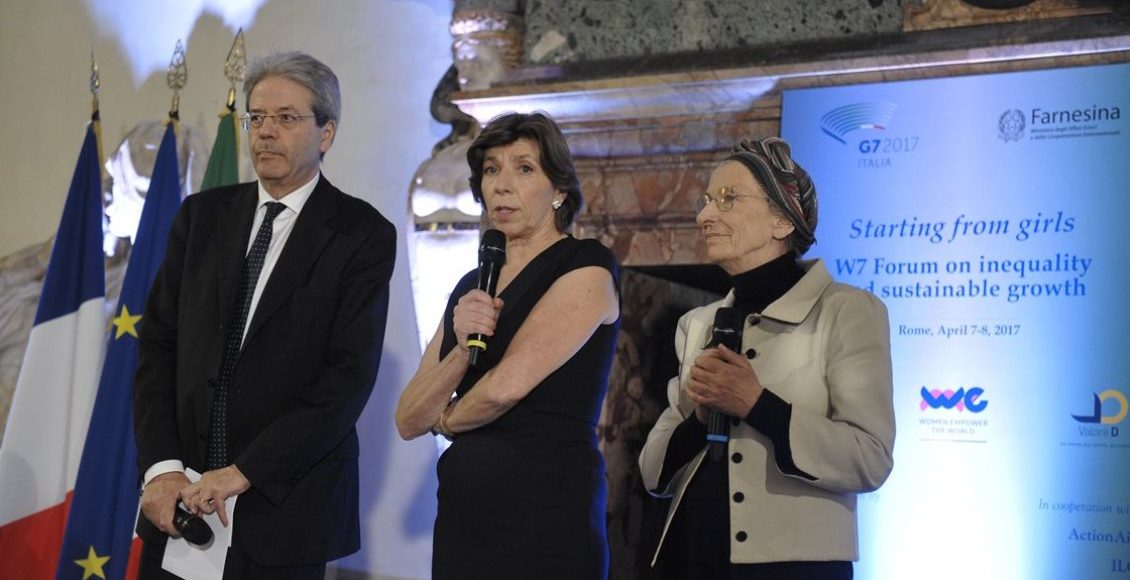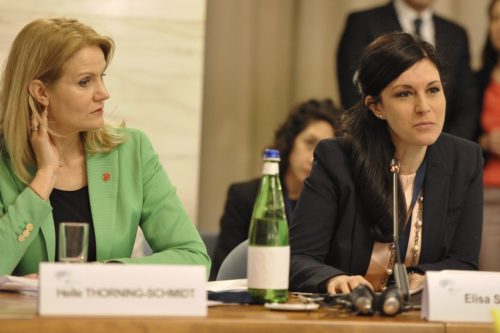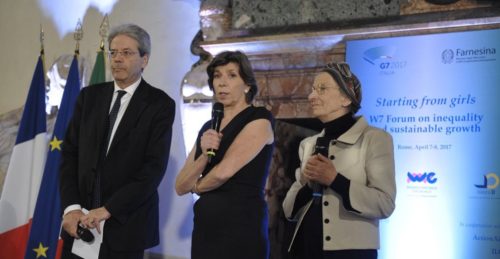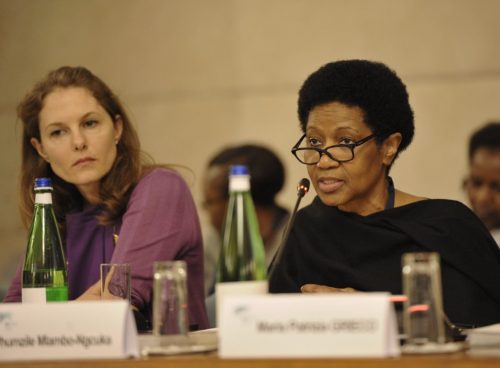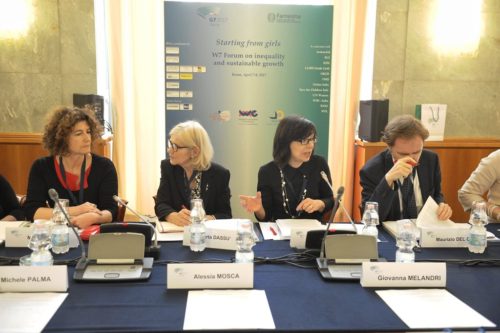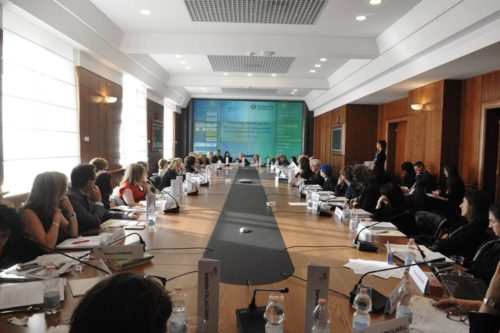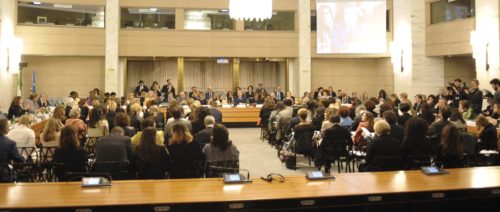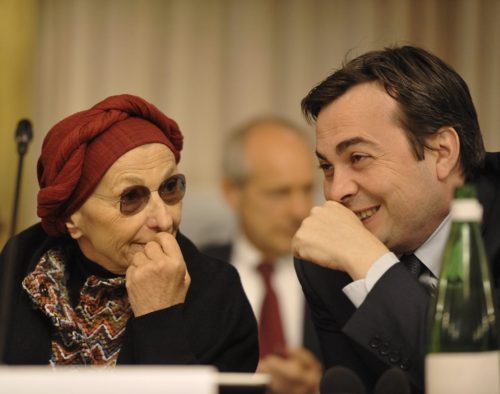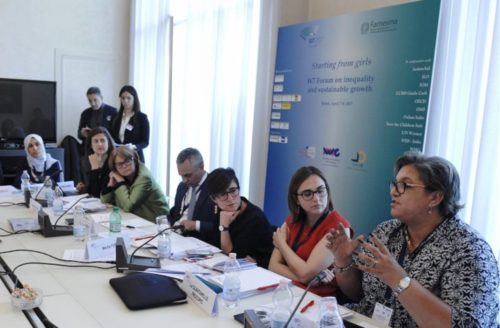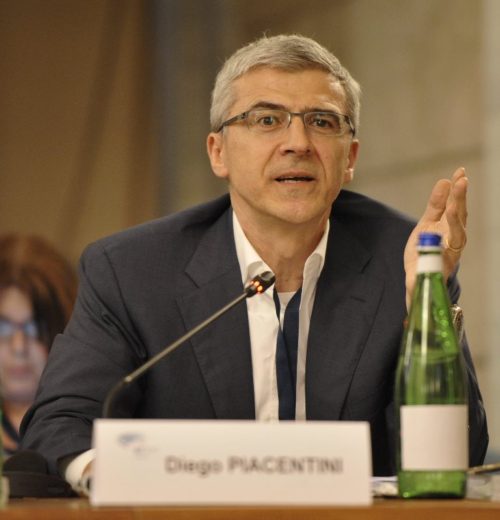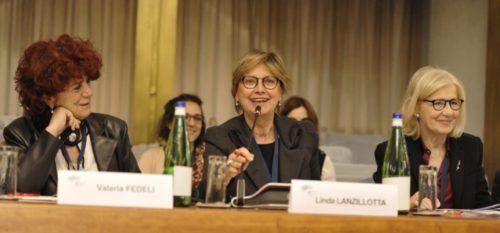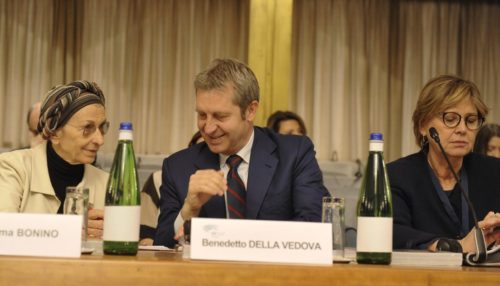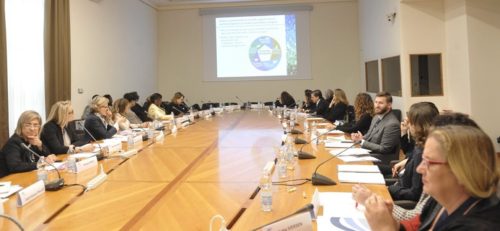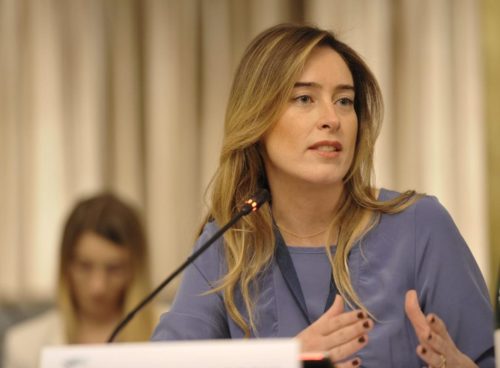WE – Starting from girls: Women’s Forum on inequality and sustainable growth
International Forum – Rome, April 7-8, 2017
“You didn’t have to be a slave to fight to end slavery, and you don’t have to be a woman to fight for gender equality.”
On the occasion of the G7 Presidency, the Italian Government, in cooperation with WE-Women Empower the World, the Aspen Initiative for Europe and Valore D, organized a W7 Forum on Inequality and Sustainable Growth entitled Starting from Girls. The Forum was held in Rome on April 7-8, 2017.
RELATED DOCUMENTS
NEWS AND PRESS RELEASE
No country has fully achieved gender parity. A renewed effort from all actors at all levels, and from women and men alike, is necessary.
As recalled by one of the participants, “you didn’t have to be a slave to fight to end slavery, and you don’t have to be a woman to fight for gender equality.” Gender inequality is a battle worth fighting for all. It requires a wide array of policy measures at various levels, since the gender gap has many manifestations and its socioeconomic roots are deep. A holistic approach, which starts from girls, is needed, and more data will help in conjunction with better monitoring and evaluation of results. Policies to be pursued at the national level are key to any significant progress.
The paradox is that closing the gender gap is quite obviously beneficial to society as a whole, from a purely economic perspective (growth, productivity, income distribution) as well as in terms of the broader quality of life and well-being of our societies (especially for children, with a lasting impact on future generations).
While the Sustainable Development Goals are universal, G7 countries may drive the agenda because of their political influence and economic impact. The G7 can set the bar and thus lead by example.
In the context of poorer countries, women’s and girls’ rights are a central development issue. Poverty itself is often the biggest problem, as it essentially equals exclusion – although it is also true that even in the most affluent countries women sometimes suffer from lack of dignity and social protection. Where extreme poverty is widespread, providing cash transfers to poor women can make a huge difference, leading to better nutrition for themselves and their children (who will then be more likely to go to school), and better access to healthcare centers; giving women money also means that they will invest in land/agriculture and improve their family’s quality of life. Keeping girls in school is equally crucial, as it helps stop child marriages and promotes a more balanced demographic structure and healthier families.
International bodies and national governments, however, are not the only actors in this endeavor: in particular, the media can help. A dramatic case in point is human trafficking as a “crime against humanity”: news networks can tell stories to sensitize public opinion and provide positive role models. But there are many other areas in which positive models of diverse women, on both traditional and “new” media, would go a long way towards changing the mindset of boys and girls: for instance, as sharing unpaid and domestic work more equally between men and women is good for all society (children in the first place), stereotypes must be challenged and there should be no stigma surrounding male caretakers and women’s potential in other fields. Language is also key: we should talk about “non-discriminatory” policies rather than “quotas” to address gender imbalances. Best practices within companies are also important: companies with more women have been shown, statistically, to have 6% more profit on average, and 1,400 companies have already committed to non-discrimination (and thus to promote and retain women) as well as to training and development specifically for women.
At any level, progress can be better achieved by focusing on pragmatic cases: if the goal is to “leave no one behind”, it would behoove us to focus on individuals over towns and cities over countries. Individual efforts and even relatively small success stories are always useful as they can provide inspiration for others.
Although targeted and practical policies are likely to have a bigger impact than generically ambitious goals, it is also important to have a good grasp of macro-trends, and big data can help in this respect. This means looking at the broader picture, in terms of demographics, migration, economic factors, cultural issues andnormative/legal frameworks. Monitoring problems as well as positive steps is indispensable to a timely evaluation of policies and, of course, to accountability.
In the context of the two-day conference, Working Group 1 focused on investing in girls’ economic empowerment and fostering growth. Efforts to close the gender gap in pay and in participation rates are a way to unleash the potential of half the world’s talent pool. How to do it, with an emphasis on “starting from girls”:
- start early and with a long-term vision, create supportive environments for girls (and boys)
- put technology to the best use: smart flexibility in the workplace can improve work-life balance
- tackle discriminatory laws, involving civil society in efforts to increase social fairness
Working Group 2 looked at social inequalities and the future of democracy – based on the assumption that
women’s empowerment is not only an individual right but also a smart choice to strengthen the democratic and participatory processes in contemporary societies. How to do it:
- value and quantify unpaid work. It benefits society as a whole and as such it is a collective responsibility. This type of contribution deserves to be recognized, and even included in pension schemes.
- both maternity and paternity leave are key. “Family-friendly policies” are essential for the full participation of women in politics, the economy, and society at large. This requires a combination of efforts in various sectors and from different players: governments, businesses, unions, schools etc.
- the availability of vast amounts of good data is key to assessing the impact of policies
- violence and harassment (including mobbing) are practical obstacles to empowerment
Working Group 3 focused on health and science – based on the notion that access to healthcare is fundamental from an economic perspective as well as in terms of global justice.
- sexual and reproductive health and rights are a driver of growth: it is particularly important for adolescents (1 out of 6 human beings) to be educated and healthy, so they can become the leaders of tomorrow
research and technology, as well as basic science, are crucial sectors in which women must emerge and excel by overcoming significant obstacles - focusing on STEM (Science, Technology, Engineering and Mathematics) and finance implies also making the subjects specifically attractive to girls (which demands a different approach from that with boys as, for example, women tend to sign up for “finance” courses at college if they have “sustainable development” or “ecology” in the title)
Working Group 4 looked at migrants, refugees and the integration issue.
- a lack of data and a lack of nuanced understanding means not appreciating what migrants are going through nor how to help
- distorted perceptions make things worse: our very language sometimes denies women agency: calling them “vulnerable” and grouping them with minors (“women and children”) fails to give necessary importance to opportunities and empowerment. Making them victims keeps them from being decision-makers
- the G7 should make multi-year investment for a research initiatives “starting with girls” and ensure that job creation schemes are geared toward women and protect labor rights
Italy will be the first G7 country to organize a Ministerial Meeting on Gender Equality.

